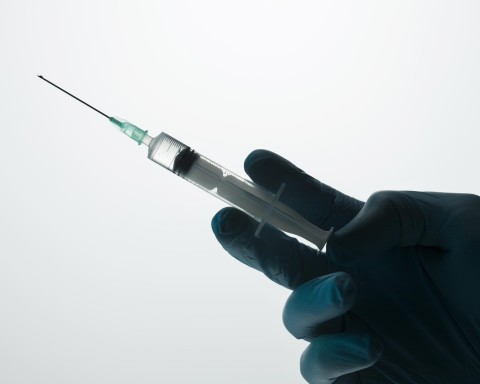In a world where wealth often translates into power, attention, and transformation, some men are now directing their fortunes toward an increasingly personal and private domain: their genitals. Cosmetic penis enhancement, once a taboo topic whispered in dark corners of the internet, has become a luxury service marketed to elite clients with price tags soaring as high as $200,000.
What was once considered a fringe procedure is now being rebranded as a status symbol, a medical “upgrade” offered in high-end clinics that feel more like designer showrooms than doctor’s offices. But behind the glossy marketing and bold promises lies a complicated reality one that blends insecurity, risky outcomes, and an industry eager to profit from male vulnerability.
Why Are Men Paying So Much?
The motivations behind these ultra-expensive procedures vary, but most are rooted in the desire for confidence, performance, and perception. For some clients, it’s not just about size it’s about identity. In a society that often links masculinity to physical traits, having a larger penis is seen by some as an extension of power, success, and self-worth.
For high-net-worth individuals, the financial barrier is irrelevant. These procedures are positioned not just as medical interventions but as premium lifestyle enhancements on par with luxury cars, tailored suits, or private plastic surgery vacations. Some clinics even offer custom packages, complete with limousine pickup, hotel stays, and a discreet concierge team to guide the patient through the process.
The Procedures Behind the Price Tag
While the price may imply a high-tech miracle, the actual procedures often rely on a mix of traditional techniques: fat grafting, dermal fillers, silicone implants, and ligament cutting. These methods aim to increase length, girth, or both. Some doctors promise permanent results, while others offer temporary changes requiring repeat visits and top-ups.
Many of these treatments are not FDA-approved for penile enhancement, and the results can be inconsistent. Some clients report life-changing satisfaction. Others are left with complications that include pain, nerve damage, irregular shapes, or the need for painful corrective surgeries. Despite the risks, demand is growing fueled by social media, competitive masculinity, and targeted marketing.
Marketing Masculinity: From Shame to “Status Upgrade”
In recent years, the language around male enhancement has shifted dramatically. What was once sold with shame or secrecy is now framed as self-improvement. Clinics use phrases like “redefining manhood,” “peak confidence,” or “full masculine potential.” The idea is to move the conversation away from insecurity and position the surgery as a bold, empowering choice.
This rebranding has opened the door for a different kind of clientele men who may not be struggling with size anxiety but are drawn in by the promise of refinement or performance optimization. In other words, it’s not just about fixing a perceived problem it’s about elevating what already exists, just like whitening your teeth or sculpting your abs.
When Enhancement Becomes Regret
However, not all outcomes are glamorous. With the increase in procedures has come a parallel rise in reconstructive surgeries. Some patients are left physically or emotionally scarred. The fillers may migrate, the grafted fat may become lumpy, or the implants may shift unnaturally. In some cases, men lose sensation permanently or suffer long-term discomfort.
These complications have led to a growing field of specialists who now focus entirely on correcting failed enhancements. For every high-end clinic offering luxury upgrades, there is a surgeon somewhere else trying to repair the damage. And while success stories make headlines, the regret stories are often buried shared only in anonymous forums or with trusted physicians.
The Psychological Side No One Talks About
What often goes unspoken in this trend is the emotional complexity behind these choices. Many men pursue enhancement not out of vanity, but out of long-standing insecurity or trauma. They may have been bullied, mocked, or conditioned by unrealistic expectations in pornography or pop culture. In that context, the surgery represents not just a change in appearance, but a form of psychological relief.
Yet experts warn that surgery does not always resolve those feelings. In fact, in some cases, it deepens them. When the results fail to match expectations or when complications arise the emotional impact can be devastating. Depression, shame, and even sexual dysfunction can follow. And because of the stigma, many men suffer in silence.
A Growing Industry With Little Oversight
One of the most concerning parts of the high-end penis enhancement boom is how little regulation surrounds it. Unlike other cosmetic procedures, where guidelines are strict and oversight is common, this niche market operates in a gray zone. Surgeons may lack specific training. Clinics may overpromise. And clients, eager for change, may not ask the right questions.
Without standard practices or long-term studies, the risk is real even at the highest price point. A $200,000 penis enhancement may come with luxury packaging, but the body doesn’t recognize marketing. Healing is unpredictable. Reactions vary. And in a field that plays so heavily on hope and confidence, disappointment can be profound.
What This Trend Says About Modern Masculinity
Ultimately, the rise of ultra-expensive penile enhancement says more about culture than medicine. It reflects how male insecurity is increasingly monetized, how wealth can chase physical ideals, and how deeply rooted the performance of masculinity remains even in an age of supposed body positivity.
For some men, these procedures offer a genuine solution. For others, they become a costly lesson in chasing an illusion. Either way, the $200,000 penis isn’t just a medical phenomenon it’s a mirror reflecting what modern masculinity is willing to buy, risk, and redefine in pursuit of approval, power, or peace.













